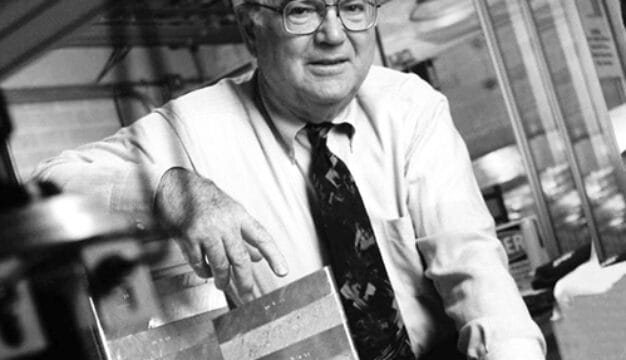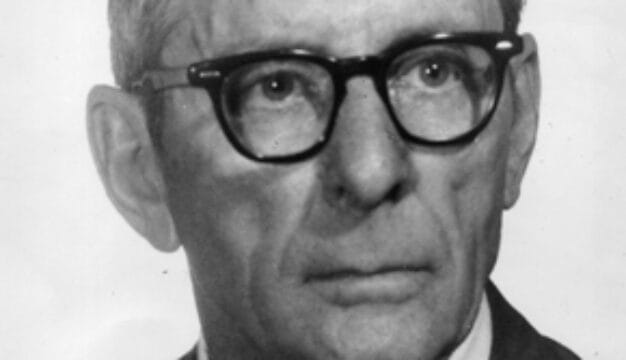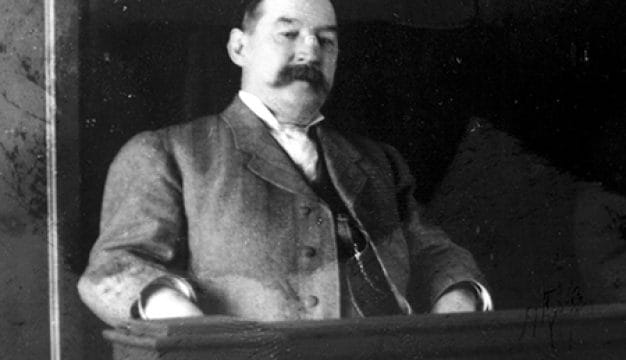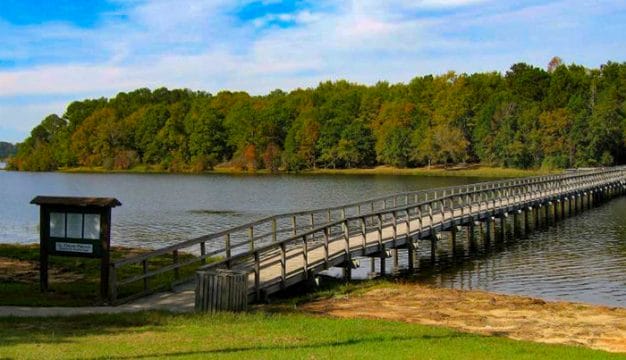Ivy Green
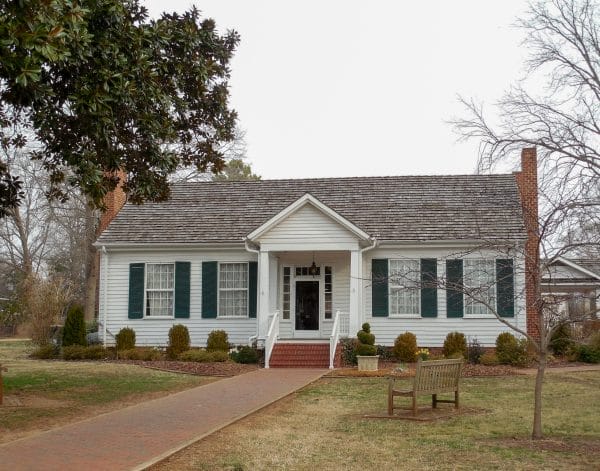 Ivy Green
Ivy Green, the birthplace and childhood home of Helen Keller (1880-1968), is a biographical and historic house museum in Tuscumbia, Colbert County. The deaf and blind author and social activist became a world-renowned advocate of educating the blind and deaf and also for civil rights and labor reform. The house was purchased by the city of Tuscumbia in 1954, placed on the National Register of Historic Places in 1970 and further documented in 1990 and 1991. In addition, then-Congressman Robert “Bud” Cramer highlighted Ivy Green for the Library of Congress Local Legacies project in spring 2000.
Ivy Green
Ivy Green, the birthplace and childhood home of Helen Keller (1880-1968), is a biographical and historic house museum in Tuscumbia, Colbert County. The deaf and blind author and social activist became a world-renowned advocate of educating the blind and deaf and also for civil rights and labor reform. The house was purchased by the city of Tuscumbia in 1954, placed on the National Register of Historic Places in 1970 and further documented in 1990 and 1991. In addition, then-Congressman Robert “Bud” Cramer highlighted Ivy Green for the Library of Congress Local Legacies project in spring 2000.
There are three structures of importance on the 10-acre Ivy Green estate: the main house, the cottage, and the water pump where Keller first communicated with her teacher, Ann Sullivan. Keller’s paternal grandparents, David Keller and Mary Fairfax Moore Keller, built Ivy Green in 1820 on what had been a 640-acre parcel. The main building is the white clapboard house, one and a half stories built in the Southern Virginian Cottage style. The house has a brick foundation, a cedar shingle roof, and wood-frame walls. There are four rooms on the first floor, each with its own fireplace, and there are twin chimneys on each end of the house. The dining room and the living room are on the west side, and on the east side there is a bedroom and the exhibit room (which formerly served as a bedroom). There are three bedrooms upstairs.
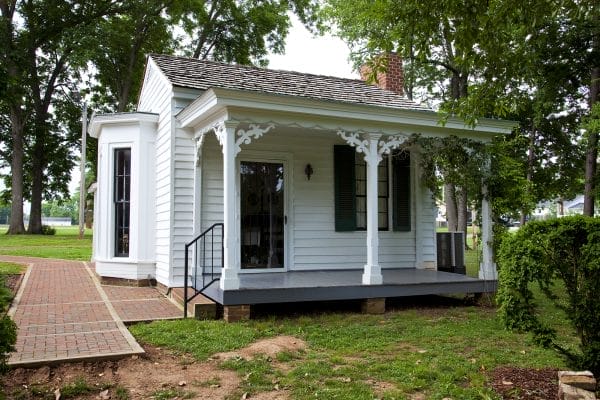 Helen Keller Birthplace
Other buildings on the property include a cook’s house, which is located behind the home near the gardens and contains the separate kitchen facility. The cottage, located directly to the right of the main house, was first used as a plantation office, bedrooms for family members, a bridal suite for Helen’s parents. Most notably, it was Helen’s birthplace and home to Sullivan and Keller after Sullivan came to live with the family. The large bedroom has a bay window and there is a playroom in the back of the building. A porch and a dressing room were added to the original structure.
Helen Keller Birthplace
Other buildings on the property include a cook’s house, which is located behind the home near the gardens and contains the separate kitchen facility. The cottage, located directly to the right of the main house, was first used as a plantation office, bedrooms for family members, a bridal suite for Helen’s parents. Most notably, it was Helen’s birthplace and home to Sullivan and Keller after Sullivan came to live with the family. The large bedroom has a bay window and there is a playroom in the back of the building. A porch and a dressing room were added to the original structure.
The grounds of Ivy Green highlight the outdoor water pump where Helen first had her breakthrough in her ability to communicate. The pump has since been covered with a foursquare open structure. The grounds are landscaped with English boxwoods that are more than 150 years old, as well as the English ivy the house takes its name from, in addition to magnolias, mimosas, roses, other flowers and trees, and an herb garden. Furthermore, there is a Japanese Garden with a stone lantern and a ceremonial gate donated by the Maori people of New Zealand. Keller had visited both countries and influenced the practice of educating the deaf and blind among the Maori. The Carriage House and Gift Shop is just outside the herb garden and near the Lion’s Club’s International Memorial Foundation garden.
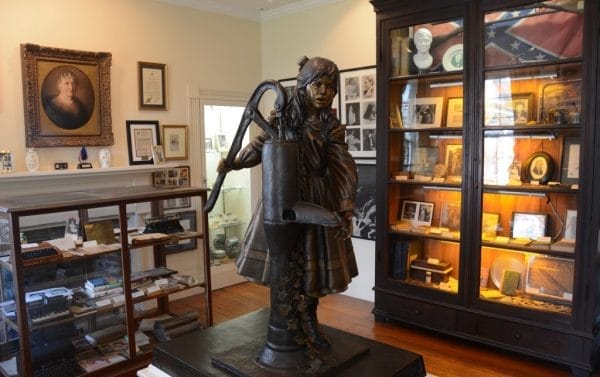 Exhibit Room at Ivy Green
The city of Tuscumbia purchased Ivy Green from the Keller Family in 1954 and opened the property to the public that year. It also appointed the Helen Keller Property Board of Tuscumbia to oversee the house and the grounds. The board, along with the state of Alabama, worked together to have Ivy Green added to the National Register of Historic Places in 1970. In 1972, a fire damaged the west side of the house; the roof was replaced as well as some of the second story floors and windows. The repairs were made with the intent to maintain the original appearance of the house, and architectural drawings were consulted during the repairs. After the fire, furniture from the Keller family was donated to the museum, and the second floor was opened to the public. The museum room in the main house exhibits personal items from Keller’s life, such as books, gifts, and mementos from her extensive travels.
Exhibit Room at Ivy Green
The city of Tuscumbia purchased Ivy Green from the Keller Family in 1954 and opened the property to the public that year. It also appointed the Helen Keller Property Board of Tuscumbia to oversee the house and the grounds. The board, along with the state of Alabama, worked together to have Ivy Green added to the National Register of Historic Places in 1970. In 1972, a fire damaged the west side of the house; the roof was replaced as well as some of the second story floors and windows. The repairs were made with the intent to maintain the original appearance of the house, and architectural drawings were consulted during the repairs. After the fire, furniture from the Keller family was donated to the museum, and the second floor was opened to the public. The museum room in the main house exhibits personal items from Keller’s life, such as books, gifts, and mementos from her extensive travels.
Tuscumbia holds a weeklong Helen Keller Festival every year at the end of July. There is a downtown parade on the anniversary of Keller’s birthday, a party in nearby Spring Park, music, arts and crafts, and other festivities. At Ivy Green, there are outdoor performances of The Miracle Worker during June and July.
Ivy Green is located at 300 North Commons Street West. It is open Monday through Saturday from 8:30 a.m. to 4:00 p.m. but is closed for major holidays. Admission is $7.00 for adults and $4.00 for children. Tickets to The Miracle Worker are $10.00. Nearby are the Tennessee Valley Museum of Art, the Alabama Music Hall of Fame, Belle Mont Mansion, the Colbert County Courthouse Square Historic District, the Tuscumbia Historic District, and several structures listed on the National Register of Historic Places and the Alabama Register of Landmarks and Heritage.
